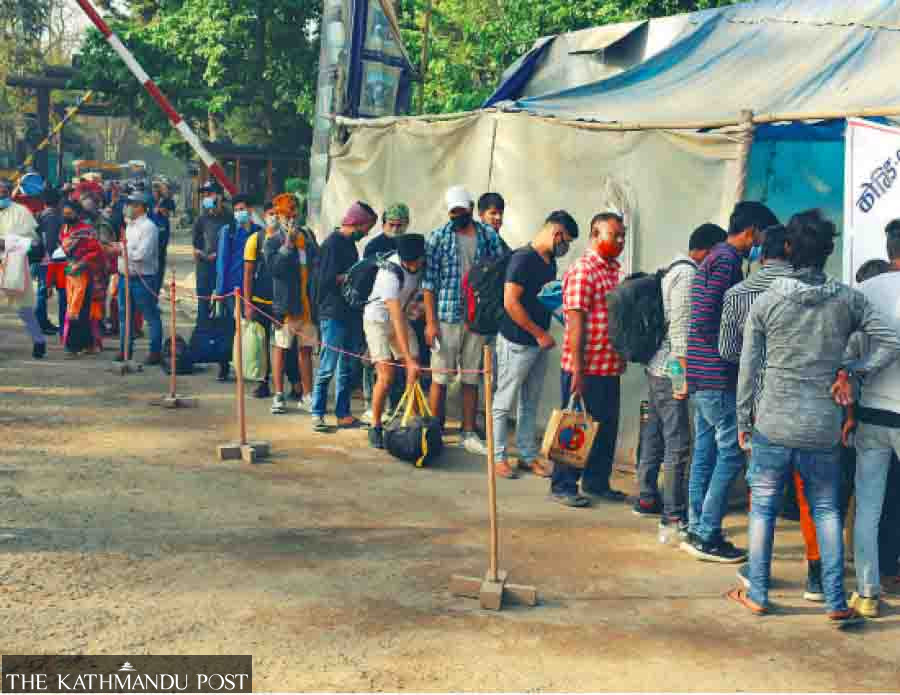Editorial
A bit of a concern
Careful monitoring of the rise in Covid-19 cases should be given high priority.
Alarm bells have been set off after a jump in Covid-19 cases across Nepal's northern and southern borders. What is more worrying are reports of a surge in cases in the Indian capital. Due to ease of travel to the southern neighbour and the porous nature of the border we share with India, there is some justification for concern; but nothing to panic about yet. However, going by the government’s previous track record, nothing seems to get done until it’s too late. Hence, careful monitoring of the rise in cases this time around has to be high on the list of priorities.
With preparations for the local elections in full swing and the countless political rallies that will be the norm, contact among people is bound to increase, inadvertently leading to the spread of the virus. And in a bid not to undo the gains we have managed to achieve so far, perhaps the concerned authorities should expedite the administration of booster doses to the most vulnerable. Hygienic habits, such as wearing masks and washing the hands, may need to be reiterated to the public as well, given how quickly we tend to forget the devastating impact of the first and, in particular, the second waves of the pandemic.
While gearing up for the elections, politicians should show responsible behaviour this time around. This should also be seen as a test of their leadership to steer the country out of a crisis in a meaningful way. Given the precarious economic situation and the constant threat of rising infection rates, a careful balancing act is needed on the government’s part to prevent another crisis. We have seen that harsh lockdowns will just exacerbate the economic crisis, and Nepal does not have the economic strength that other nations possess to sustain repeated jolts to its supply chain, which has been stretched to the limit and may buckle under pressure if it is made to endure another crisis induced by the pandemic.
That doesn’t mean that the economy is to be prioritised over human lives. Timely action by the authorities could allow the country to function in a way that would be as normal as possible and not lead to the sudden arrest of all its operations through knee-jerk reactions, as we have witnessed in the past. As of now, most of the cases in India haven’t led to hospitalisation, and have been conveniently dealt with through home isolation. But there should be no room for sloppiness.
The last two years have probably been the most harrowing of times for many, and it is not just the risk to the health and the economy, but the immeasurable impact it has had on many things we took for granted before the pandemic. What about the effects on children and schools? Our inability to tackle these repeated occurrences will have far-reaching consequences beyond health and the economy. And it is about time that we tackle it efficiently and effectively—none of the last-minute scramble to tie up loose ends as we witnessed in the past.




 9.7°C Kathmandu
9.7°C Kathmandu














